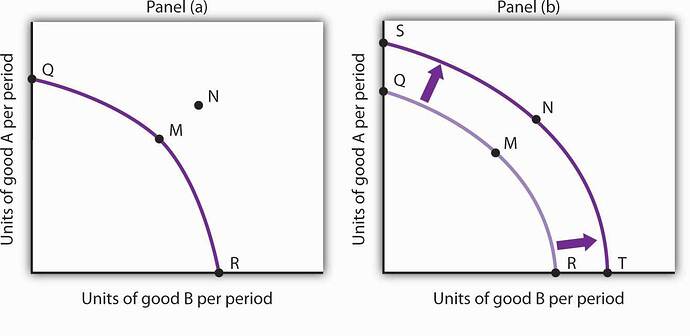There is no way to address your actual concerns without either GMOs or genocide.
In anthropology and biology this is called carrying capacity. The environment can only provide X resources for Y number of organisms. The only levers to change this equation are increase the capacity or decrease the number of organisms.
This is a good thing, not a bad thing!
This is bad?
sounds like JT wants to DEFUND AGRICULTURE
i generally believe carbon footprint calculations, but it does usually compare growing beans in a single perfect season to factory farming of meat. there’s probably more to the equations that we don’t take into account.
anecdotally, driving through eastern washington, it’s essentially changed landscape for agriculture, thousands of square miles of all grain monoculture that looks like a desert. but just 200 years ago it was grassy and wooded areas with lots of herding animals and predators. i am not going to pretend to pull numbers out of my ass, but it seems that was probably a net carbon sink compared to what we have now. if we could raise cattle in permaculture, and treat the manure/methane emissions, i think it would be closer to “natural” state than all veg. fwiw, i’m willing to pay 3-4x for animal protein and cut back on meat in general to get there.
if eating less meat means we gotta keep deforesting land all the way into canada, that does not add up in my tiny reptilian brain.
But using resources more efficiently is the exact opposite of at the expense of the environment.
Things like GMO rice have lifted hundreds of millions of people from starvation.
Improving the health, living conditions and education of the poorest people on the planet would go a long way to reducing birth rates, which you might find more palatable than genocide, prevention being better than cure and all that.
I’m fine with that, but we can’t keep feeding them without GMOs.
I generally agree with your end of this debate, but on the other hand burning oil and coal also lifted large percentages of the global population out of poverty. So it’s perfectly sensible to ask tough questions about whether GMO use is a sustainable track. But equally important is to make that assessment based on science and reason.
We feeding them?
I mean people in some of the poorest parts of the planet are paid to grow fucking coffee beans in place of actual food to satisfy wealthy American and European palates.
The collective humanity “we.”
This ignores the actual problem of resource allocation. When 10% of the people use 70% of the resources or whatever it is population isn’t the problem.
I think people are talking at cross purposes. Some are arguing about where we should be on the production possibility frontier, and others are pointing out that it’s good for the production possibility frontier to be as far out as possible.
they grow fucking coffee beans (actually chocolate is a better example) because it pays more, which buys them other calories. the supply chain is very oppressive, don’t get me wrong, but complaints about coffee production vs “actual food” are lolAF.
Because of force
Excellent screen name.
Seems like you have a lot of legitimate concerns…
About things that aren’t GMOs
It attracts a much higher market price of course, but what actually reaches people depends entirely on government policies/taxes/corruption, and having to pay to import food from abroad makes little sense when local collective farming should be an option.
